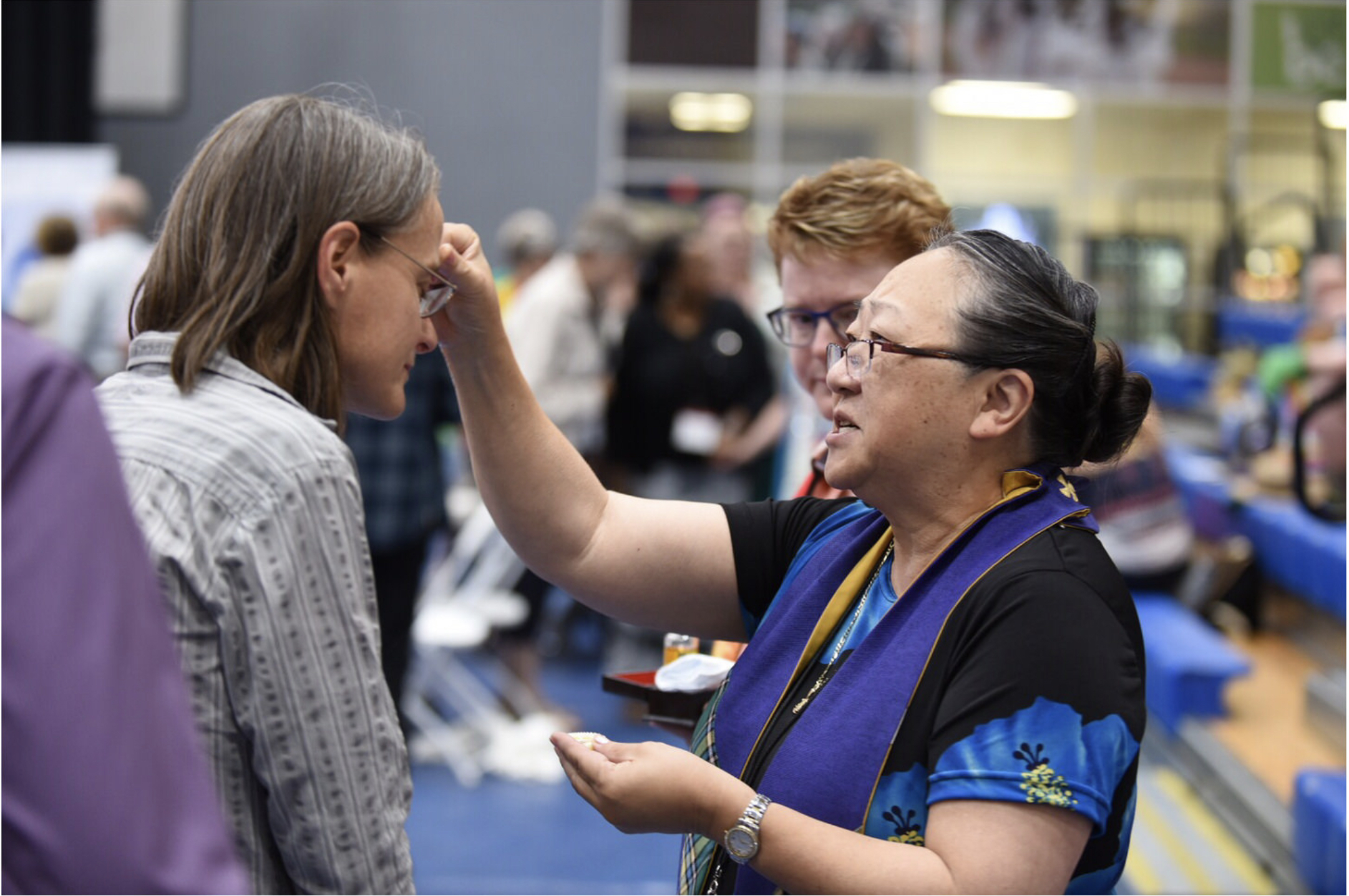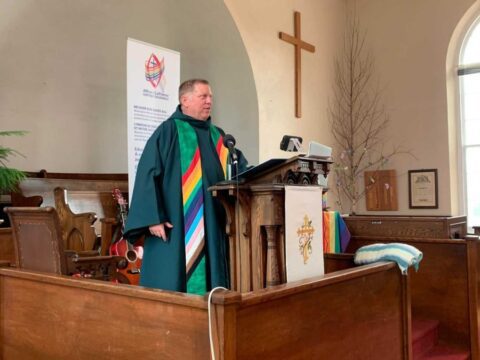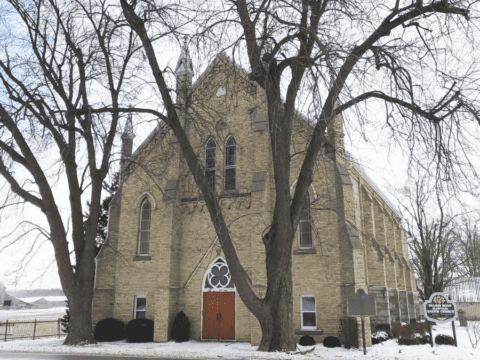It took almost six years to reach the hour of decision, but once it arrived, agreement was swift. During the first day of its official meeting, the 43rd General Council of The United Church of Canada enacted four key restructuring decisions. These far-reaching changes will soon be enshrined in an altered United Church constitution.
In the biggest move, commissioners voted to replace the traditional four-court system of General Council, Conferences, Presbyteries and pastoral charges with a more streamlined three-council model. The new structure features a denominational council, regional councils and communities of faith (including churches, pastoral charges and other spiritual communities). Commissioners also approved eliminating the transfer and settlement option for ministers and creating an Office of Vocation that will take over most ministry personnel work. Finally, they said yes to a new funding model for church governance and administration. The most serious opposition, 12 percent of commissioners, was registered in this fourth vote, which will see overall assessment costs rise for many communities of faith.
You may unsubscribe from any of our newsletters at any time.
The enactments marked the end of a lengthy process, beginning with a Comprehensive Review, followed by the design of a new church structure three years ago at the General Council in Corner Brook, N.L., and then three more years of studying and approving that plan in church-wide votes called remits. Since a majority of pastoral charges and Presbyteries had supported the proposed changes, their passage in Oshawa was almost inevitable. Afterwards, Moderator Rt. Rev. Jordan Cantwell offered a prayer about the restructuring process: “Holy, disturbing, grace-filled God, this has been such a long, sometimes difficult, often joyful and exciting journey for us,” she reflected. “We are always and forever a work in progress.”
Once the remits were approved, commissioners spent the next six days filling in details of how the key structural changes will be implemented. Some decisions were easy — like adopting the name General Council for the body legally known as the denominational council. Others, like deciding whether all of the church’s regions should be represented on the much smaller denominational council executive, were not.
As part of the proposed move to a leaner governance model, the previous General Council decided an 18-member executive (down from the current 50) needed “competencies in theology, governance, finance, and vision and should reflect the diversity of an intercultural church, lay/ministry personnel and geography.”
With places reserved on the new executive for the moderator, past moderator, general secretary and an Indigenous representative, the creation of 16 regions means all of them can’t be assured of representation. While the remit on the three-council model passed without resolving this dilemma, proposals on the issue from two Conferences were later referred to the general secretary for study.
Jean Brown, who represents Newfoundland and Labrador Conference on the outgoing Executive of General Council, was disappointed. “What I found was I brought the wisdom from my region [to the Executive],” she says. “And by the same token . . . if any congregation or Presbytery wanted more information, they could call me.” Without a direct link, “all that is lost.” Rev. Ha Na Park, minister of Immanuel United in Winnipeg and a member of the incoming executive, told Council that the new group will “experiment with starting an intentional community where, as possible, racism and white privilege, settler privilege and other dominant privileges have less power over our wisdom-building.” She hopes that when decisions are made “by those who are affected by these oppressions directly, [we can] pay more attention to the work of the Spirit.”
Anticipating that General Council would enact the remits, church leaders have gotten a head start on applying the changes. With boundaries in place, regional council transition commissions — made up of Conference and Presbytery officers and volunteers — are developing staffing and governance models. According to remit implementation project leader and former Toronto Conference executive secretary Rev. David Allen, “They’re working on budgets, a process for choosing a name for the regional council, and a host of other matters that will be needed so the regional councils are functional on Jan. 1, 2019.”















This is a financial and power takeover of the money, lands resources and charities of the United Church of Canada by the racist rastafaian leadership of the General Council. It is a wordly manifestation of anger and hate perpetrated by people who have no love in their hearts and minds. It is not the will of God. The deception perpetrated by this office of Vocation is a vechicle to control the Christian ministers/leaders who direct the flow of money and church real estate. Reparations is the goal of all this devious activity. The energy used to develop anti-white, intercultural churches, housing, climatic issues, keeping the churches open is just a diversion for the true goal. As of May 1, 2022 Ms. Britton who is a rastafarian high priestess from the Caribbean will have goverance control and power over the finances of the church. The constant craven image logo used during the 2022 Annual General Meeting is abhorrent. Moses informed us God is a jealous God. Vandalism in the churches is due to the “self-love” prevalent since 1989 governance decisions by previous Annual General Meeting leaders who were not “of the Holy Spirit. Leaders are concerned because they do not want the precious premises of the church real estate to be damaged because it reduces the selling value. It is not to defend the LGBTQ2 spirit population. Life-long members who have been financial contributors, elders, givings of time talent and treasures, Sunday School teachers, ministers, secretaries, custodians, ministry personnel, adherents, being christened, married, divorced, buried through the power and love of God the Father and the Holy Spirit, to God be the glory not the rastafarian, atheist cults. Regional Councils have allowed the take over and done nothing to stop letters of recrimination going out to members who disagree with the dictatorial decisions by leadership within the church. The strategy is to drive them from the churches and sell the properties to control monies of the sale. I am not willing to sacrifice God, Jesus, or the Holy Spirit for your leadership deception goals and subjugation.